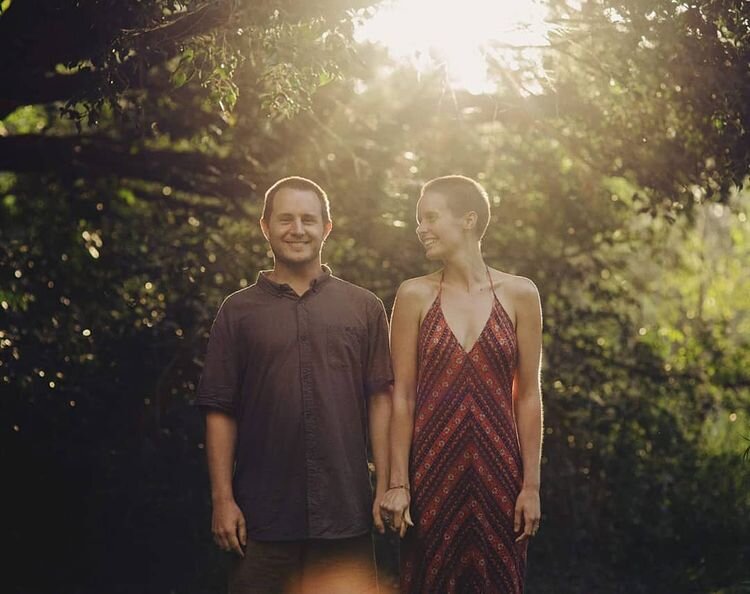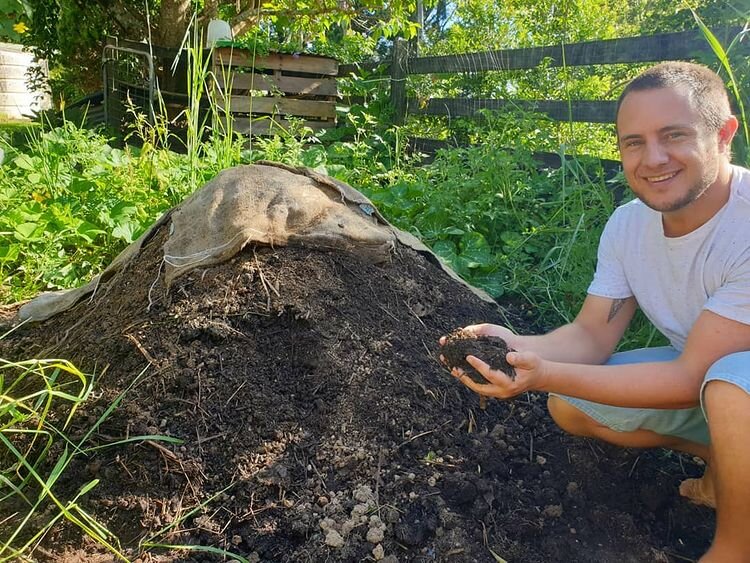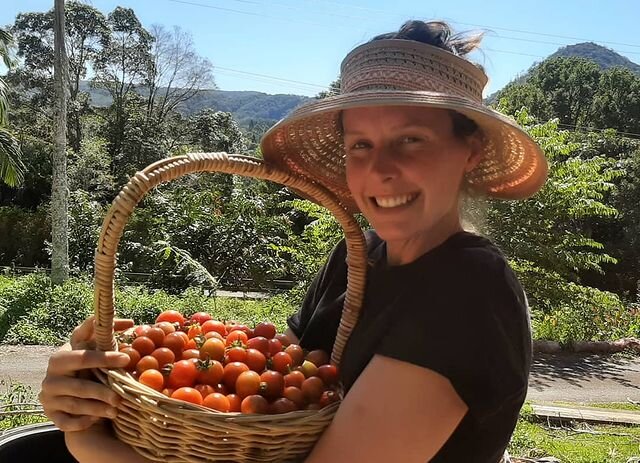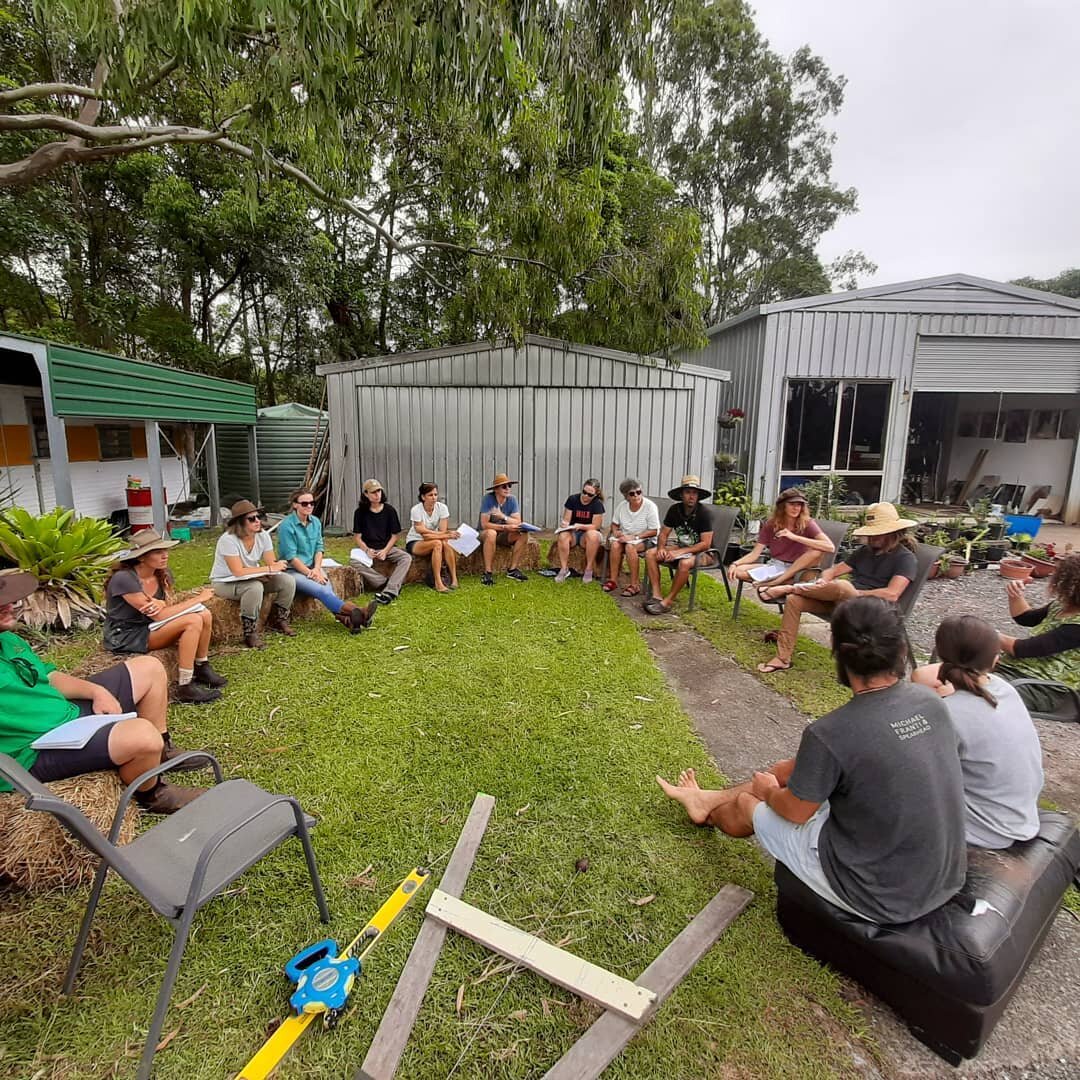Lulu's Perch & Farmstead
“Could you tell us a little about Lulu’s Perch and the farmstead?”
“Lulu's Perch is a 5 acre Permaculture farm nestled in the Noosa hinterland and is run by Aaron, Petrina and Lulu.
On our farm we have a vegetable market garden integrated with a tropical food forest that are both designed to capture and hold rainwater and nutrients, drought-proof the landscape and prevent flooding and erosion.
Our chickens, ducks and goats are our hardest workers helping us to transform food waste and biomass into soil and fertility which is then directed into the food growing system.
We have designed our homestead to accommodate students who are eager to learn about the permaculture practices and want to reconnect with the land.”
“What inspired you to leave Sydney and dedicate your life to permaculture?”
“I was working as a mental health nurse and saw the overflow of rural and remote farmers who were being admitted due to the psychological effects of droughts, floods, and debts to agriculture companies.
I knew there had to be better farming practices that worked with nature so I got in touch with world renowned permaculturalist Geoff Lawton. He taught me on his Permaculture Design Course and internship how to grow food in one of the most desolate places on Earth, the Jordanian Desert; 300m below sea level, on a salt flat next to the Dead Sea with little rainfall. From that point onwards I knew that if we could grow food in a salty Jordanian desert we can grow food in Australia.
I decided to pack my bags and move to the Sunshine Coast so I could dedicate my life to teaching people how we can rekindle that lost hope in our hearts and regenerate the Australian landscape back to its former glory.”
“What does a day in the life on your farm look like?”
“Every morning we start by looking after ourselves with yoga, breath work or a morning stroll. We find that there's no point in trying to change things in the wider world if we aren’t starting with our own hearts and minds.
By the time the sun has risen we will have fed the animals with our kitchen scraps and clucker tucker plants and begun preparing a new vegetable bed with a multitude of ingredients we call the 'Worm Lasagne." As the day begins to warm we like to harvest fruits and berries from our shady food forest while chopping and dropping our support plants to feed the soil.
In the midday heat it is time to retreat to our hammocks for some R&R (relax and research) so we can prepare our weekend lesson plans and course material for students. Once the afternoon begins to cool we venture out as a family to tend to the market garden by watering plants with our homemade organic fertilisers, harvesting ripe produce and flipping our large compost piles.
As the first stars begin to show we take our bounty of vegetables into the house and cook up a large feast for dinner and share stories of our day before getting an early night. Living our lives by the movements of the sun and its seasons.”
”Who has been your biggest influence to date?”
“While Geoff Lawton took me under his wing and introduced me to the world of permaculture, my friend and humble permaculturalist Daniel Deighton showed me how I could take my love for nursing, teaching and gardening and entwine them all into one purpose with our 'Living Classroom Project.'
For 18 years he has been using his amazing permaculture drawings, designs and ideas to inspire kids in schools to be self-sustainable and learn outdoors using practical real-time lessons.
As a high school teacher and a nurse I always struggled to connect with every student and patient in such rigid and clinical environments. It wasn't until Daniel introduced me to the Living Classroom that I believed healing and learning can happen in the garden and often in the absence of teachers and nurses.”
“Could you tell us a little about the basic principles of permaculture and their toolbox?”
”The three core ethics which guide permaculture design are embarrassingly simple:
Earth Care, People Care and Fair Share.
I say embarrassingly simple because as advanced as we believe that we are as individuals or as a civilisation, most of, if not all of our decisions do not take any of these ethics into account.
My year two students will tell us that the first practice is always to 'Observe and Interact' with the land before we make any decisions; watching the solar pathways of the year, feeling the soil texture between our fingers, observing where the water flows during storms and following the prevailing wind as it blows through our hair. Then based off our observations we 'Capture and Store' energy with water tanks, solar panels, windmills and even compost piles to ready ourselves for the garden build.
Our vegetable gardens follow the 'patterns in nature' and are built along the land's contours so water and nutrients are caught in our garden beds and pathways reducing our watering and fertilising jobs and freeing up our time for other projects. Finally we can 'Obtain a Yield', cook up our produce and give a Fair Share to ourselves, our friends, our animals and the soil.”
“We love adventure here at Land & Sea, and seeing as you are all about the former, what is your favourite adventure to have on land?”
“My favourite place for adventure is always where the land meets the sea. I love the feeling of bodysurfing into a huge blue vortex of glassy water before meeting the chaos of the shoreline. My childhood was spent poking around the shallow rock pools looking for sea urchins, shells and crabs to annoy. I have developed an appreciation for salt water plants like mangroves that hold our landscape together, filter the estuaries and provide shelter for schools of fingerlings. They truly are an under appreciated friend. I think where the land meets the sea is where life flourishes exponentially. In permaculture we call this the 'edge effect,' so I guess you can say I love living on the edge!”
“At Land & Sea we’re trying to improve our business one sip at a time. Any advice on how we could inter-grate some permaculture principles to do that?”
“If we follow the three core ethics of Earth Care, People Care and Fair Share, the Land & Sea team can sit down and observe where your business interacts with each ethic from the soil in which you harvest your hops and grain to the moment a customer takes their first sip and every step in between. Composting your spent grain to build healthy soil, biodiverse crop fields to prevent pests and the need for sprays, and supporting local grain producers to reduce food transport mileage. The ethics and principles can also be applied not just to the physical operations of Land & Sea but also the social structure and emotional functions of your business. How do your employees and customers feel with the ethos of Land & Sea? Sometimes these questions can open up a can of worms but hey, worms are great for your garden!
What advice do you have for anyone wanting to get into permaculture?
The beautiful thing about permaculture is that anyone can practice it at anytime. From tiny balcony gardens to 10,000 acre farms the permaculture principles and practices are exactly the same. My advice to you is to join your local permaculture group, visit your local community garden and connect with other like-minded growers who can give you cuttings, seeds and valuable information on how to start your own permaculture garden. I think everyone at some point in your life should complete a permaculture design course (especially politicians!) so we can come together, redesign our landscape and show our children what it feels like to live in a world of abundance.
Aaron will be running his next Permaculture Design Course at Lulu's Perch in July 2021.





